Category: Business
-
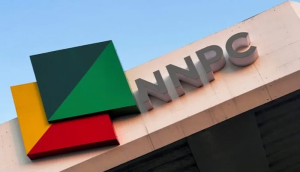
NNPCL Restores Production of 275,000 BPD
The Nigerian National Petroleum Company Limited (NNPC Ltd) has agreed with TotalEnergies, Petroleum and Natural Gas Senior Staff Association (PENGASSAN) and the Nigeria Union of Petroleum and Natural Gas Workers (NUPENG) to suspend the ongoing strike which has led to the immediate restoration of 275,000 barrels of oil per day production.Chief Corporate Commissions Officer ,NNPC Ltd, Olufemi Soneye who made this known in a press release said the peace deal was made on 12th November, 2023.According to him, a communiqué was issued by NNPC Ltd and signed by the unions involved.He said ” In a communiqué issued at the end of a marathon negotiation session chaired by Oritsemeyiwa Eyesan, Executive Vice President, Upstream, NNPC Ltd., all parties committed to resolving all the issues within an agreed framework”.” The communiqué was jointly signed by TotalEnergies MD/CEO Matthieu Bouyer, PENGASSAN President, Comrade Festus Osifo, and NUPENG President, Comrade Williams Akporegha. It was witnessed by NNPC Ltd.’s, EVP Upstream Oritsemeyiwa Eyesan and Chief Upstream Investment Officer, NNPC Upstream Investment Management Services, Bala Wunti. Also in attendance was Victor Bandele, Deputy Managing Director, TotalEnergies”. -
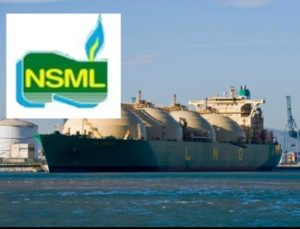
NSML Rebrands With Name Change, Promises Sustaining Excellence in Maritime Service Delivery
A leading player in the maritime industry, has officially announced its name change to NLNG Shipping and Marine Services Limited.Abdulkadir Ahmed, Managing Director of NSML described the rebranding move as one that speaks to the wider range of maritime services the company is providing in NigeriaAccording to him,the name change which retains the old acronym, NSML, will not reduce the excellent service delivery for which the company is knownThis strategic move reflects the company’s evolving business focus and commitment to providing an expanded range of top-tier shipping, marine, and maritime services in line with its vision to be a leading international services company, supporting the growth and development of the Nigerian maritime industry.While commenting on the exciting transition, Mr. Abdulkadir Ahmed, the Managing Director and Chief Executive Officer of NSML, stated, “Our company’s transformation into NLNG Shipping and Marine Services Limited signifies a significant milestone in our journey.This change is not merely about a new name but a clear testament to our dedication to delivering excellence and innovation to our clients in the maritime sector.“In embracing the name change to NLNG Shipping and Marine Services Limited, we emphasise our dedication to delivering excellence and innovation to our clients in the maritime sector. This transition underlines our commitment to providing a comprehensive suite of maritime services that include terminal management, maritime training, project management, maritime consultancy, and business advisory services. Our evolution is a response to the evolving needs of our clients and the industry.“As NLNG Shipping and Marine Services Limited, our unwavering commitment to our clients remain paramount. The change in name does not alter our dedication to delivering the highest level of service. We will continue to exceed expectations and uphold the trust our clients have placed in us,” he said.He noted that the name change, which was part of the company’s rebranding plan, solidifies the company’s position as a leader in the maritime industry, stating that “NSML remains at the forefront of innovation, setting benchmarks for others to follow. This transition aligns seamlessly with our strategic vision to not only adapt to change but to spearhead it.”He appreciated the continued support from regulatory agencies, clients, partners, and stakeholders. He urged for more collaboration in the maritime industry that would help transform it into one of the most resilient in the world, adding that with NSML as the largest maritime company south of the Sahara, the impact of its repositioning will resonate not only in its services but in the growth and development of the entire Nigerian maritime landscape.#shipping #energy #maritime #marine #NLNG #NigeriaLNG -

BUA Cement Targets 17 million MTPA Capacity by Q1 2024
Chairman of BUA Cement Plc, Nigeria’s second-largest cement company, Abdul Samad Rabiu, has disclosed that the company has perfected plans to commission its Obu Line 3 factory and Sokoto Line 5 factory by the first quarter (Q1) 2024 with a combined capacity of 6 million metric tons per annum.
He made this known at the BUA Cement FY2022 Annual General Meeting (AGM), maintaining that the expansion drive will raise the company’s total installed production capacity to 17 million metric tons per annum (mtpa).
The announcement accompanied the presentation of BUA Cement’s full-year results, which showed a 40.3 percent increase in revenue from N257.3 billion in 2021 to ₦361.9 billion in 2022, just as its Profit After Tax (PAT) recorded a 12.1 percent rise, climbing to ₦101.0 billion in the year under review, compared to N90.1 billion in the previous year.
While addressing the shareholders, the Chairman stressed that in spite of the challenging macroeconomic environment, BUA Cement remained steadfast in its commitment to being the preferred provider of quality cement for dependable housing and infrastructure development in Nigeria.
He further stated that the introduction of the new production lines in early 2024 positions BUA Cement to address the growing cement demand within Nigeria and also expand export volumes to neighboring African countries.
“BUA Cement will continue its unwavering focus on innovative product delivery, efficient logistics, and tailored sales solutions for our diverse customer base across Nigeria, and Africa. In addition, we are dedicated to improving the well-being of our host communities through sustainable development initiatives”, he said.
On the high prices of cement in the country, Rabiu highlighted that BUA Cement Plc’s planned introduction of the Obu Line 3 and Sokoto Line 5 in Q1 2024 aims to alleviate the surge in demand in Nigeria and contribute to making cement more accessible and affordable, in line with the direction of the Federal Government to boost infrastructure development.
“Our Company remains resolute in its strategies, chiefly centered on market consolidation. We have a presence in every market throughout the nation. The completion of Lines 3 and 5 in Obu and Sokoto respectively, will empower us to offer better prices, and more significant quantities of cement to the domestic market, thus strengthening our market share across Nigeria, and Africa. I am confident in BUA Cement’s ability to play a role in reducing cement prices in Nigeria,” he added.
Managing Director of BUA Cement Plc, Yusuf Binji, who underscored the company’s dedication to efficient energy utilisation in the cement production process, revealed potential plans for introducing a new product in next year to align with customer needs and preferences.
“BUA Cement is attuned to customer demands and market trends. While we continue to work on making our production process more energy efficient, we are also exploring the possibility of introducing a new product next year,” he stated.
BUA Cement is Nigeria’s second largest cement company with a current installed capacity of 11 million metric tons per year. The company aims to reach 17 million metric tons yearly with the completion of two new plants in Edo and Sokoto by early 2024.
-

Ecobank Unveils Back-to-School Packages for Customers
Ecobank Nigeria is offering special loan packages for parents and guardians to enable them pay school fees for their children and wards ahead of resumption for the 2023/2024 session, while making special infrastructure loans available to educational institutions.
This, according to the bank, will equip them adequately for the new session. The bank also said it has optimised its digital platforms to make them convenient for school fees and other education-related payments.
Announcing the various ‘back to school’ initiatives of the bank in Lagos, Head, Consumer Banking, Korede Demola-Adeniyi, said it is in line with the bank’s overall strategy to support the development of the nation’s education sector, adding that Ecobank’s digital offerings are targeted at reducing the financial burden on parents, students and schools, and also facilitating the ease of payment of fees without hassles.
She listed the digital offerings to include Ecobank Mobile App, EcobankPay and Ecobank Online for contactless fees payment; personal loans and salary advance packages at competitive interest rates, international transfers for offshore school fees payment and affordable remittance offerings. She also noted that families abroad who wish to send money home to help with fees can do so at zero charges on the Rapidtransfer app.
The bank has also provided the Banking-for-School pack for educational institutions to access working capital and loans. The features of this pack include easy fee collections, zero charges on collection accounts with EcobankPay, secure online banking with Omni Lite and cards for easy payments.
“As a bank that is passionate about education, we are prioritizing the pedagogical needs of our customers at this period when schools resume. Children deserve to go to school and we are making it easy for parents to provide them this basic right,” she added.
Demola-Adeniyi urged schools to appoint the bank as their preferred financial institution for payments and collections, noting that Ecobank has demonstrated pedigree and expertise in fees collection, locally and internationally. She encouraged schools and individuals that are yet to open Ecobank accounts to do so in order to access the offers available.
-
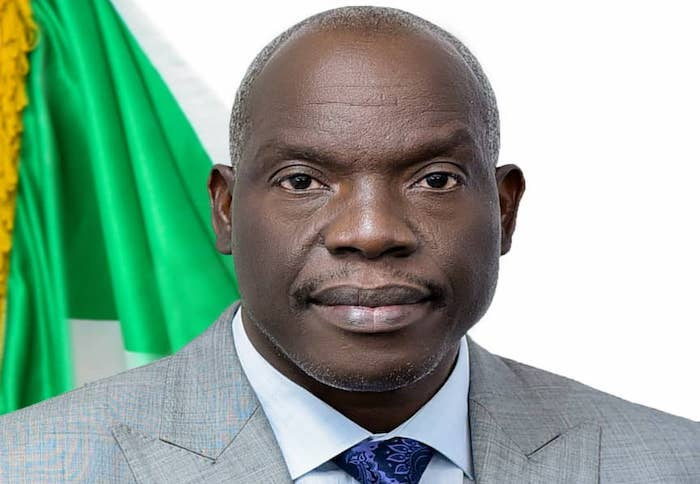
Nigeria’s CAPEX Drops $27b in 2014 to $6 in 2022
The Nigerian Upstream Petroleum Regulatory Commission (NUPRC) says the country’s total annual upstream capital expenditure decreased from $27billion in 2014 to less than $6billion in 2022.
The News Agency of Nigeria (NAN) reports that the Chief Executive of NUPRC, Mr Gbenga Komolafe, revealed this on the sideline of the World Petroleum Congress (WPC) in Calgary, Canada.
Komolafe, represented by the Executive Commissioner, Mr Kelechi Ofoegbu, said the figure represented a 74 per cent decrease in the capital expenditure (CAPEX).
He attributed the decline in CAPEX to several factors, while emphasizing that regulatory uncertainty significantly impacted investment in Nigeria’s oil and gas industry.
Komolafe further said that prevalent in the years preceding the enactment of the Petroleum Industry Act (PIA) also affected investment in the industry.
The News Agency of Nigeria (NAN) reports that the event was jointly organised by Crabtree Consulting, the Gas Aggregation Company of Nigeria (GACN) and CarbonAi x-rayed.
The topic was “Nigeria and Canada: Collaborating to Decarbonise Nigeria’s Oil and Gas Sector”.
He listed other factors as de-funding of fossil fuel development occasioned by energy transition and the global call for decarbonisation.
According to him, most International Oil Companies (IOCs) deprioritised Nigeria in their portfolios which led to the redirection of CAPEX to other countries with attendant dwindling investment in Nigeria’s upstream sector.
“This under-investment impacted negatively on the country’s rig count. On average, Nigeria had 17 active oil rigs in 2019 representing one of the highest counts in the African continent as at then.
“The average rig count declined to 11 in 2020, seven in 2021, 10 in 2022, but recently grew to as high as 31 by August 2023, a positive signal of new investments trickling into the country.
“The relatively high crude oil prices may also be attributed to the increase in activities in the petroleum upstream sector.
“We also see this as a reflection of investors’ acceptance of the PIA and its effective implementation by the regulator.
“The projected outlook over the next few years looks promising, and as the regulator in the oil and gas upstream sector, we will leverage on this opportunity by doing all that is necessary to attract more investments and revamp the Nigerian upstream sector,” he said.
The NUPRC boss added that the PIA has repositioned the Nigerian petroleum sector by creating efficient and effective governing institutions, with clear and separate roles for the industry.
According to him, it has also provided for enabling transparency, accountability, and fostering a business environment conducive for petroleum operations.
He explained that since the enactment of the PIA, the Commission has developed 24 priority regulations which would give meaning and intent to the spirit of the PIA and create a predictable regulatory environment for operators and other stakeholders.
On energy transition, he reiterated the need for oil and gas producers to embrace the reality of green transition and take strategic positions to leverage the opportunities presented by the unfolding era.
“With Nigeria’s huge gas reserves of 208.83 TCF and a potential for an increase to about 220 TCF within the next 10 years, Nigeria has adopted natural gas as our transition fuel in our stride at developing cleaner fuels and staying on track with our net zero emission commitment of 2050
Unfolding events have equally shown that natural gas is our destination fuel, with a projection that gas will form a significant part of the energy mix for Nigeria by year 2030 and beyond.
“In recognition of this, the government has designed the Decade of Gas programme to ensure that gas actually plays a role to lift us from the challenges that confront us in order to drive industrial development,” Komolafe explained.
Earlier, the Chief Upstream Investment Officer, NNPC Upstream Investment Management Services (NUIMS), Mr Bala Wunti, said reaching net zero would require improvements to the enabling environment, robust project preparation and tapping different sources of finance in a coordinated manner, considering each country’s context whether developed or developing.
He said in his presentation titled, “Decarbonising Nigeria’s Oil and Gas.”
Wunti, represented by the Asset Manager, Group PSC (Production Sharing Contract), NUIMS NNPC Ltd., Mr Justus Derefaka, hinted that pursuing a net-zero emissions pathway comes at a very high price tag.
He added that gas use for power would need to increase to meet rising electricity demand until 2030.
“Delivering Nigeria’s current NDC requires strong gas uptake across the economy, including 80 per cent of cars being powered by Compressed Natural Gas(CNG) and 50 per cent of the population using Liquified Petroleum Gas(LPG) for cooking by 2050.
NAN also reports that the five-day conference has the theme: “Energy Transition: The Path to Net Zero”.
The 24th WPC has recorded no fewer than 15,000 visitors from over 100 countries, 5,000 delegates and over 200 national and international exhibitors.
-

Anti Smuggling : Customs Record N1.51b Seizures in Ogun
The Ogun 1 command of the Nigeria Customs Service (NCS), on Monday, said that N1.51bn loss incurred by the smugglers in the last eight months would have improved Nigeria’s economy if channeled into legitimate trade.
Giving his welcome address at a symposium organised by the Ipokia Local Government Youth Forum (IPYF), titled, “Smuggling and Hoarding Of Petroleum Products: Effects On Border Communities & National Security,’ the acting Customs Area Comptroller, Ahmadu Shuaibu, said the program was an opportunity to inform and enlighten the border communities about the consequence of smuggling on the socio-economic wellbeing and national security of the country.
Shuaibu who was represented by the Deputy Comptroller, Administration of Idiroko Border, Charles Ogunesan, said smuggling retards the nation’s economic development, hampers social wellbeing and endanger national security.
According to him, It is time smuggling is stopped considering the dangers inherent
in it, saying the service has lost officers to death and permanent disability while locals have also been killed sue to smuggling. communities had lost of their members to the evil of this unfortunate demon called smuggling.“The Command in conjunction with the youths, used the opportunity of this auspicious occasion to bring us all together, to inform and enlighten us about the consequence of smuggling on our socioeconomic wellbeing and national security. Over the years, the Command had recorded series of horrible and unwanted experiences in our line of lawful duties. These experiences range from blocking of access road by smugglers and their sympathizers, mob attacks of officers either going in pursuit of information or conveying seized goods to the government warehouses, skirmishes to altercation which often result to casualties.
“We have lost of officers to death and permanent disability while our dear communities had lost their members to the evil of this unfortunate demon called smuggling. It is high time we say no to smuggling considering the dangers inherent in it. It retards our economic development, hamper our social wellbeing and endanger our national security.”
” From January of this year to date, for instance, the Command had made a seizure of goods worth N1,514,478,916.00. If such huge amount of money is well utilized for legitimate trade, this will no doubt improve our economy.”
Shuaibu who reiterated that the security and development of the country is the responsibility of everyone, stated that the core mandate of the command is to generate revenue, suppress smuggling, facilitate legitimate trade and secure our border lines.
“Similarly, the recent seizure of smuggled ammunition and the usual seizure of harmful substances like Cannabis Sativa (popularly known as Indian helm), among other dangerous goods, are good examples of threat to our social wellbeing and national security.
“Permit me to state empathically, that our core mandate in Ogun State is to generate revenue, suppress smuggling, facilitate legitimate trade and secure our border lines. I want you to know that the security and development of our dear nation are the responsibility of us all,” Shuaibu stated.
Also speaking, the keynote speaker, Barr. Kehinde Bamiwola, advised the government to reduce Customs duty and tariff on goods not locally produced in the country.
He, however, warned that any country whose import is more than export will be regarded as a dumping ground that will be bugged by high debt profile.
“Smuggling kills or destroys local industries and the domestic economy. Smuggling creates unhealthy competition for local industries outside the doctrine of comparative cost advantage. This has nothing to do with the concept of legitimate international trade. It causes great economic loss through loss of Customs duties, taxes receivable by government and also promotes proliferation of fake, counterfeit or substandard items.
“To the Border communities, smuggling discourages education, industrialization and legitimate trade and antithesis to Agricultural development as well as tilting and disequilibrium the national income equation.”
He, however, recommended that government should aid local production of goods that are mostly imported via agric loans, subventions and free Customs duty on farm equipment and machines.
“Government should aid local Production of goods that are mostly imported via Agric-loans; industrialization grants, subventions and make farm equipments and machines Customs duty free.
“Since smuggling started as reactions to high taxes and custom duty, I hereby recommend call for reduction in custom duties and tariffs on goods that are not locally produced in Nigeria.
“Proper regulation and stabilization of the foreign exchange market should be done. Foreign currency speculators and racketeers including their sponsors (bourgeoisies or money bags) should be dealt with if we must have a sane demand and supply regulated foreign exchange market in Nigeria.”
-
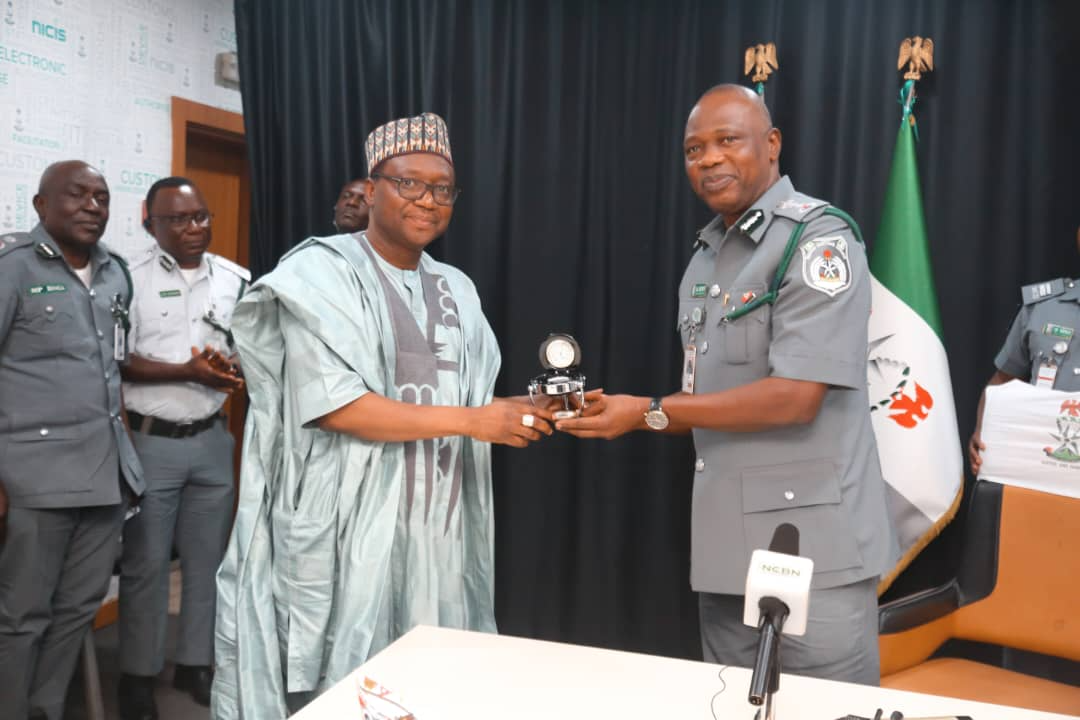
Revenue Leakage: Customs, RMAFC Collaborate to Boost Federal Income
The Nigeria Customs Service (NCS) and Revenue Mobilisation Allocation and Fiscal Commission (RMAFC), have collaborated, in a bid to enhance Nigeria’s revenue generation and combat the persistent issue of revenue leakages.
The Acting Comptroller-General of Customs, Bashir Adewale Adeniyi announced the groundbreaking partnership on Tuesday, October 3rd, 2023, at the Nigeria Customs Headquarters in Abuja.
This collaborative initiative seeks to align strategies and pool resources to maximize the remittance of accrued revenue to the Federal Government, marking a pivotal moment in Nigeria’s financial landscape.
During the visit, Chairman Muhammad Shehu Umar and his delegation from RMAFC received a warm welcome from Ag. CGC Bashir Adeniyi. The CGC expressed his unwavering commitment to this partnership, emphasizing the collective responsibility for minimizing revenue leakages and maximizing remittances.
Adeniyi stated, “It would be a collective responsibility for all of us to come together to minimize revenue leakage and maximize remittance of accrued revenue to the Federal Government.”
He also commended RMAFC for their relentless pursuit of solutions to revenue challenges, highlighting the pivotal role this collaboration could play in achieving their shared objectives.
Chairman Muhammad Shehu Umar reciprocated the enthusiasm, congratulating Ag. CGC Adeniyi on his appointment and applauded his acceptance of their partnership proposal. Umar reaffirmed his unwavering support for the CGC’s mission to boost revenue generation, echoing President Bola Ahmed Tinubu’s emphasis on this vital endeavor.
Furthermore, Umar praised the Nigeria Customs Service’s strides under the leadership of CGC Adeniyi in facilitating trade across the nation, recognizing that these efforts would catalyze increased revenue generation.
The partnership between the Nigeria Customs Service and RMAFC promotes fortifying the nation’s finances and mitigating revenue losses, ultimately bolstering Nigeria’s economic resilience.
This collaboration signifies a united front in the battle against revenue leakages and underscores the commitment of these two institutions to safeguarding Nigeria’s financial interests.
-

Comptroller Ajibola Engages Stakeholders in Efforts to Streamline Export Trade Processes
Comptroller Ajibola Odusanya, Customs Area Controller Lilypond Export Command on Wednesday, October 4th, 2023, engaged key stakeholders in a meeting on Efforts to Streamline Export Trade Processes and pave the way for increased foreign investment.
The objective of the gathering was to foster a deeper understanding of the challenges faced by stakeholders in the export trade sector and to formulate strategies to address them effectively.
Comptroller Odusanya emphasized the significance of this meeting, stating, “It provides an avenue for us to identify the challenges that stakeholders are grappling with, and where we, as facilitators, can step in to alleviate these issues.”
Highlighting the government’s commitment to expediting export-related activities, he remarked, “We are aware that the current government is dedicated to facilitating export businesses, and the Acting Comptroller-General of Customs, Bashir Adewale Adebiyi, has placed a high priority on advancing exports, in line with the federal government’s vision.”
Comptroller Odusanya also underscored the potential benefits of resolving export trade hurdles, pointing out that attracting foreign investors is one of them. “Numerous foreign investors may express interest in investing in Nigeria, particularly in export-related ventures. When they perceive that there are no substantial barriers, they will be encouraged, ultimately leading to job opportunities for our youth within the export sector.”
Furthermore, the CAC emphasized the Nigeria Customs Service’s commitment to ensuring that Nigerian goods compete favorably in domestic and international markets. “Export trade is inherently international, and as officers and facilitators, we will spare no effort to ensure that our goods maintain competitiveness in the global arena,” he affirmed.
Odusanya concluded that a shift toward a trade surplus favoring Nigeria could bolster the nation’s currency and promote industrialization. “By prioritizing exports over imports, we can strengthen our currency and, in turn, foster industrial growth,” he emphasized.
He, however, expressed his readiness to collaborate closely with stakeholders to align export trade with the vision of the Comptroller-General of Customs Bashir Adewale Adebiyi, and the directives of the Federal Government, signaling a proactive approach to improving Nigeria’s position in the global export market.
-
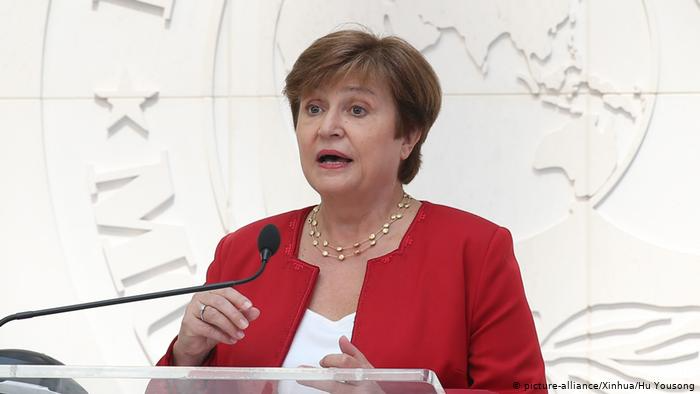
IMF Tells African Leader Remove Trade Barriers To Increase Per Capita Income
Kristalina Georgieva, the managing director of the International Monetary Fund (IMF), says African governments must remove trade barriers to increase the continent’s per capita income.
Georgieva said “international cooperation is weakening at a time the world needs it most, adding that the bridges that connect countries are corroding as trade and investment barriers rise.
The IMF managing director gave advisory on Thursday, in Côte d’Ivoire, during a curtain raiser speech in preparation for the 2023 World Bank and IMF annual meetings scheduled for October 9 to 15, in Morocco.
Georgieva, speaking on trade barriers, said operating a free trade market will push up the per capita income of an African country by more than 10 percent.
Per capita income measures the amount of money earned per person in a nation. A low per capita income means a lower average income of people living in a country and a lower standard of living.
On Thursday, the World Bank reported that since 2015, per capita items in Africa have not increased.
The lender also said between 2015-2025, Africa’s per capita items will record a steep drop of 0.1 percent.
In her remarks, Georgieva said the full implementation of the African Continental Free Trade Area (AfCFTA) will transform Africa into the world’s largest free-trade area and improve the living standards of the continent.
“A fragmented world is especially challenging for emerging and developing countries, because of their greater reliance on trade and their more limited policy space,” she said.
“Compared with other regions, the African continent stands to suffer the biggest economic losses from severe fragmentation”.
Expressing her concern, Georgieva said a fragmented world is a challenge that must be confronted.
She said: “In no other area is the need for international cooperation as evident as in addressing the existential threat of climate change. The world has a responsibility to stand with vulnerable countries as they deal with shocks they have not caused.”
“This is why we at the IMF created the new $40 billion strong Resilience and Sustainability Trust (RST). It provides longer-term affordable financing to help lower-income and vulnerable emerging market economies to undertake climate reforms.
“We have already approved eleven programs, six of them in Africa, with many more to follow over the next year or two.”
Georgieva also made a case for countries dealing with debt challenges, saying there is a need to help them, as more than half of low-income nations remain at high risk of debt distress.
-

Coke Studio Announces Africa’s Finest in Real Wonder Collision
Coke Studio has named another buzz as it announces an extraordinary collaboration between BNXN, Young Stunna and Nikita Kering in its Real Wonder Regional collision.
Described as the iconic platform known for bringing together musical talents from across the world, Coke Studio announced its return through the collaboration that is set to redefine Africa’s music landscape.
What makes “Traboski (Coke Studio)” truly exceptional is the dynamic synergy between three immensely talented superstars from different parts of the continent. Joining BNXN on this musical journey are Young Stunna, a renowned artist representing South Africa and Nikita Kering, the sensational singer-songwriter from Kenya.
Together they deliver a mesmerizing vocal performance that transcends borders and genres, promising to captivate listeners from the very first note.
To breathe life into this exceptional track, Coke Studio enlisted the expertise of two acclaimed producers, Christer Kobedi and Eashan Thakrar. With their creative input and technical finesse, they have added an extra layer of depth and polish to “Traboski (Coke Studio)”, elevating it to new artistic heights.
The Frontline Marketing Director, Coca-Cola Nigeria, Yusuf Murtala, in a statement said: “This year promises to be a pivotal moment in the world of African music, and I couldn’t be more excited about the journey ahead.”
At Coca-Cola, we have always believed in the power of music to connect people, inspire creativity, and transcend cultural boundaries. It’s in this spirit of unity and artistic exploration that we proudly support Coke Studio, a platform that has consistently showcased the diverse and extraordinary talents of Nigerian and other African artists.
Coca-Cola celebrates African talent and culture and we believe that moments like these have the power to inspire, uplift, and unite us all. We invite music enthusiasts and fans from every corner of the continent to join us on this musical journey and experience the real wonder of African creativity.
Traboski (Coke Studio) is a true masterpiece that showcases the musical prowess of BNXN, Young Stunna and Nikita Kering. With its infectious melodies, captivating lyrics, and expert production, this song is destined to leave a lasting impression on anyone who listens.